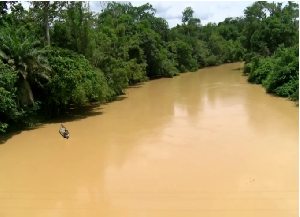In recent years, the Galamsey crisis has escalated into a significant and urgent issue in Ghana, particularly affecting regions rich in mineral resources.
This issue has exposed the troubling entanglement of political interests, as both the ruling New Patriotic Party (NPP) and the opposition National Democratic Congress (NDC) have been accused of complicity in the proliferation of illegal mining activities.
This article explores the challenges these parties face in combating Galamsey and the broader implications for Ghana’s environment and public trust.
Political Complicity
The NPP and NDC have been scrutinised for their roles in facilitating illegal mining. Allegations have surfaced that members of these political parties are receiving mining licenses and engaging in activities that undermine the fight against Galamsey. This political conspiracy has fostered an environment where accountability is elusive.
Political figures have reportedly issued licenses haphazardly, allowing individuals to mine in sensitive areas, including forest reserves and water bodies. Environmental activist Professor Kwasi Amankwah stated, “The fight against illegal mining cannot succeed if the institutions tasked with protecting our environment are complicit. We need integrity in our political leadership.”
Environmental Degradation
The repercussions of illegal mining, commonly referred to as Galamsey, extend beyond politics into environmental devastation. Galamsey activities have led to severe pollution of water bodies and degradation of forest reserves across the country. Local communities, who depend on these resources for their livelihoods, face dire consequences.
Water contamination poses significant health risks as pollutants seep into the water supply. Reports indicate that entire ecosystems are being disrupted, threatening biodiversity and local agriculture. Furthermore, the economy is also affected as these resources are crucial for various industries.
A mining expert, Eddie Annan, succinctly summarised the situation: “Political interference and lack of enforcement are the greatest challenges we face in combating illegal mining. Both parties have failed us.” Without decisive action from the government, the cycle of exploitation and degradation is likely to continue unabated.
Public Outcry and the Crisis
Public trust in these political entities is waning, with the NPP and NDC implicated in the Galamsey crisis. Citizens have expressed frustration over the lack of genuine efforts to combat illegal mining. Many view the political posturing as hypocritical, with accusations that the parties undermine their policies through corrupt practices. The recent public disputes between party leaders over who has issued the most licenses highlight the deep-seated issues within Ghana’s political landscape.
Former UN Secretary-General Dr. Kofi Annan has underscored the need for sustainable practices in Ghana’s mining sector, emphasising the importance of responsible governance: “We must ensure that our natural resources are managed in a way that is sustainable and equitable for future generations.” His call for integrity resonates with many citizens who are demanding accountability from their leaders. Your voice and demand for transparency are crucial in this fight.
Conclusion
The Galamsey crisis in Ghana represents a multifaceted challenge that the NPP and NDC must confront sincerely and resolve. Accusations of political conspiracy, environmental degradation, and a lack of public trust pose significant obstacles to effective governance. To restore credibility and protect the nation’s resources, both parties must prioritise transparency and accountability in their approach to mining regulations.
As the stakes continue to rise, the need for a unified and sincere response to the Galamsey crisis has never been more pressing. A genuine commitment to environmental stewardship and political integrity, from both the government and the citizens, will be essential if Ghana is to reclaim its natural resources for the benefit of all.
References
1. GhanaWeb. “Galamsey, Politics, and Pollution.” GhanaWeb
2. The Guardian. “Ghana’s ‘Galamsey’ Crisis.” The Guardian
3. Business Ghana. “Politics and Illegal Mining.” Business Ghana
Opinions of Wednesday, 9 October 2024
Columnist: Roger A. Agana















